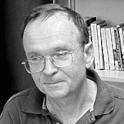
Article
Biocultural Theory and the Study of Literature
Comparative Literature
(2015)
Abstract
This essay argues that the sciences most relevant to literary study form an integrated complex summarized by the term “biocultural theory.” Foundational theories accepted currently in literary scholarship are incompatible with a biocultural understanding of the evolved character of the human mind. Psychological and social theories that form part of the amalgam designated “poststructuralism” identify important areas of human concern but can now be replaced with empirically grounded concepts that are more complete, more correct, more nuanced. The most important elements in biocultural theory are the theory of human life history and gene-culture coevolution. Biocultural theorists argue that basic human motives are channeled into cultural norms that are articulated in imaginative form through myths, legends, rituals, images, songs, and stories. Biocultural theory offers an opportunity to develop literary research in company with our developing scientific understanding of human motives, emotions, identity, social interactions, and forms of cognition.
Keywords
- biocultural theory,
- gene-culture coevolution
Disciplines
Publication Date
January 1, 2015
DOI
10.1215/00104124-2861969
Citation Information
Joseph C. Carroll. "Biocultural Theory and the Study of Literature" Comparative Literature Vol. 67 Iss. 1 (2015) p. 21 - 28 Available at: http://works.bepress.com/joseph-carroll/28/
